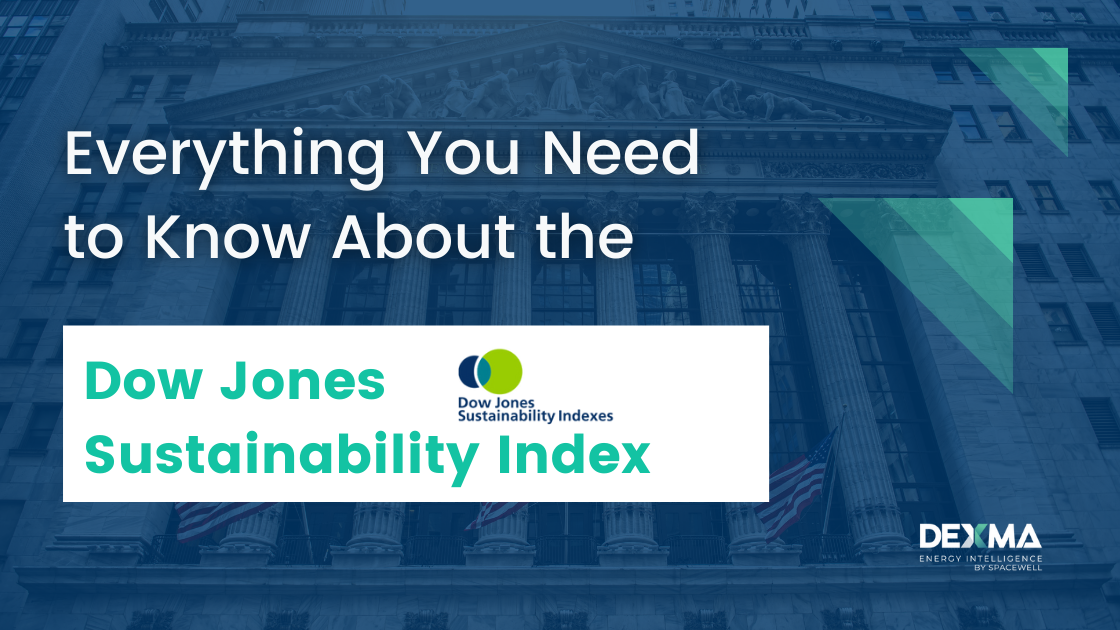More and more customers prefer to choose companies with a social and environmental commitment. One of the best-known international sustainability indices is the DJSI, an index that has become a benchmark for socially responsible investors.
Find out what the Dow Jones Sustainability Index is, and how to be part of this famous ranking.
What is DJSI and what does it measure?
Many companies are challenged to appear in sustainability rankings to attract socially responsible investors. The best example is the Dow Jones Sustainability Index (DJSI).
It was created at the end of the 20th century as an alternative to the stock exchange index of Dow Jones, valuing the sustainable practices of companies in social, environmental and economic terms. Since then, it has become well known amongst investors.
In the DJSI set of indicators you will find global, regional and country benchmarks.
The investment firm RobecoSAM, which specialises in sustainability, is responsible for preparing this ranking, which is published annually each September.
This index chooses the most socially responsible companies, this past 2020 only 307 of the 7,000 largest companies worldwide made it into the ranking.
The Dow Jones Sustainability Index is used by companies as a benchmark for good practices, which is key to generating long-term value for shareholders and thus, reflecting the company’s sustainable culture.
What are the criteria to enter the Dow Jones Sustainability Index (DJSI)?
As expected, and in line with the positive trend towards environmental responsibility, every year the requirements and the competition to enter and remain in the Dow Jones World Sustainability Index increase.
DJSI selects the most sustainable companies worldwide according to their values, in 24 industry sectors.
So, not only will you have to take into account the activity of your own company, but also the one of other companies both in the sector and in the geographical area. In addition, each sector demands certain standards, which makes competition between companies different.
In order to enter the Dow Jones Ranking, your company will have to answer a questionnaire of around 100 questions. Each year they vary the scoring criteria, adding different practices to implement and modifying the scoring.
At this point we advise you to previously review the scoring criteria that will be taken into account that year. Going through each of them will help you know the real state of your company’s social and environmental responsibility.
Remember that efficient management of energy consumption will help you achieve some of the sustainability criteria required by this index.
If you have not already done so, contact your energy manager and request an energy audit. Thanks to the audit, you will not only evaluate your company’s level of energy optimisation in order to find out whether you meet the criteria of the Dow Jones Sustainability Index, but you will also be able to detect opportunities for energy saving.
Thus, the audit will allow you to:
- Plan the improvements of the conditions of the building and the processes. This will help you raise your sustainability ratings and allow you to improve your energy efficiency.
- Detect possible changes and improvements in equipment. For example, a very typical one is the replacement of old cooling equipment with more energy-efficient ones.
- Detect bad energy consumption habits, which make your company unsustainable. For example, in an office, 95% of people leave their computers on when they finish working.
- Get better rates. The expert who carries out the audit can suggest improvements in the rate, either by changing to a new supplier for more attractive tariffs, or by adjusting the contractual powers.
These are just a few examples of good practices in energy efficiency that can help you enter the DJSI ranking.
However, in order to obtain the best results in your energy audit, it is very important that your energy manager works with advanced analysis tools that help him or her create the best energy reports. One of the most popular tools among energy management professionals is DEXMA. And you can try it for free by creating your demo account.




